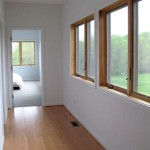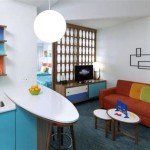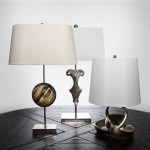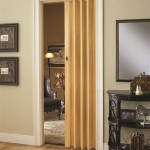Residential Interior Designers: Transforming Homes into Dream Spaces
Residential interior designers are professionals who specialize in creating aesthetically pleasing and functional living spaces within homes. They possess a blend of artistic vision, technical skills, and knowledge of design principles to transform existing spaces or bring new construction projects to life. Their role extends beyond merely choosing furniture and decor; they consider the client's lifestyle, budget, and personal preferences to craft spaces that reflect their unique identity and enhance their daily living experience.
The Scope of Residential Interior Design
The scope of a residential interior designer's work is multifaceted and encompasses various aspects of home design, including:
- Space Planning and Layout: Interior designers optimize the flow and functionality of a space by creating efficient layouts that maximize its potential. They consider factors like furniture placement, traffic patterns, and the use of different areas within the home.
- Color Schemes and Materials: The selection of appropriate colors, textures, and materials plays a crucial role in setting the mood and atmosphere of a space. Interior designers guide clients through this process, considering factors like natural light, room size, and desired aesthetics.
- Furniture Selection and Arrangement: Choosing the right furniture is vital for comfort, functionality, and style. Interior designers help clients select pieces that complement their existing furnishings, enhance the overall design concept, and meet their specific needs.
- Lighting Design: Proper lighting is essential for creating a balance between ambiance and functionality. Interior designers plan lighting schemes, incorporating various types of fixtures to achieve desired effects and highlight specific features.
- Window Treatments and Drapery: Window treatments not only provide privacy and control light but also add visual interest and enhance the overall design aesthetic. Interior designers assist clients in choosing the most suitable options for each room.
- Decorative Accents and Accessories: Accessories, artwork, and decorative elements add personality and complete the overall design narrative. Interior designers incorporate these elements strategically to enhance the space's visual appeal and create a cohesive look.
- Project Management and Coordination: Interior designers often act as project managers, coordinating with contractors, suppliers, and other professionals to ensure the smooth execution of the design plan.
Benefits of Hiring a Residential Interior Designer
Working with a professional interior designer offers several advantages, including:
- Expert Vision and Expertise: Interior designers bring years of training, experience, and industry knowledge to the table, enabling them to offer informed design solutions that cater to the client's specific needs and preferences.
- Tailored Design Solutions: Each project is unique, and interior designers tailor their approach to individual clients, considering their lifestyle, personality, and budget to create a truly personalized experience.
- Enhanced Functionality and Space Utilization: Interior designers maximize space efficiency, creating functional and comfortable spaces that are both visually appealing and practical.
- Cost-Effectiveness and Budget Management: Interior designers have a strong understanding of market trends and material costs, helping clients make informed decisions and avoid overspending on their projects.
- Stress Reduction and Time Savings: Hiring a designer allows clients to relinquish the responsibility of managing the design process, freeing up their time and reducing stress associated with home renovation projects.
Qualities to Look for in a Residential Interior Designer
When searching for the right residential interior designer, consider the following qualities:
- Experience and Portfolio: Look for designers with extensive experience and a diverse portfolio showcasing their design style and capabilities. Evaluate their previous projects to see if their aesthetic aligns with your vision for your home.
- Communication and Collaboration: Effective communication is crucial in a designer-client relationship. Choose a designer who listens attentively and fosters an open dialogue, ensuring your vision and preferences are understood and incorporated into the final design.
- Professionalism and Ethics: Seek out designers who prioritize professionalism, maintain ethical practices, and are committed to delivering high-quality work within budget and deadlines.
- Client Testimonials and References: Reviews and testimonials from previous clients provide valuable insights into a designer's work ethic, professionalism, and client satisfaction.
- Design Style and Personalization: Ensure the designer's design aesthetic aligns with your own preferences and that they are capable of creating a personalized space that reflects your unique style and taste.

Best Residential Interior Design Projects By Nitido

What Is Residential Interior Design Things You Should Know Alive Studio

25 Top Interior Design Firms To Keep An Eye On This Year Decorilla

Collaboration In A High End Interior Design Project Dkor Interiors

Certified Residential Interior Designer From Yavapai College

What Is Residential Interior Design Things You Should Know Alive Studio

Residential Interior Designing Luxuryworldinteriors Com

Home

Best Interior Designers In Seattle With Photos

Residential Interior Designer At Rs 1200 Sq Ft In Ghaziabad Id 23245360597








